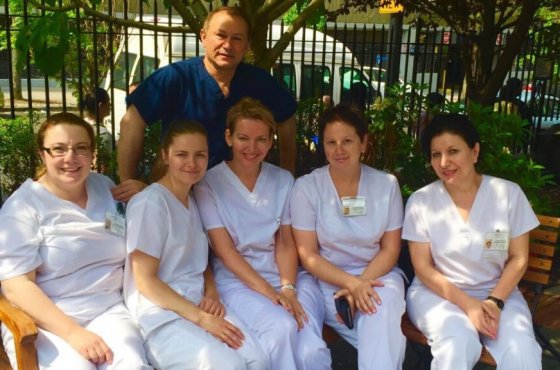How doubts of the American rocket engineers saved the world from nuclear war
Exactly 53 a year ago, 28 October 1962, a team of secret American missile base in Okinawa received an order to launch 32 tactical missiles with nuclear warheads. As you know, the order was not executed - the person in charge of the launch suspected an error and did not follow the instructions. Edition The Bulletin of Atomic Scientists I managed to talk to John Bordn from Pennsylvania, who served in Okinawa half a century ago.
The United States had four missile bases on Okinawa. On each, there were two launch centers with four Mace missiles with Mark-28 1,1 megatons warheads. Total 32 warheads, equivalent to 35,2 megatons of TNT, with a range of - 2250 kilometers. This means that communist Hanoi, Beijing, Pyongyang and Soviet military facilities in Vladivostok were in the missile strike zone.
During the next exchange of messages, the command post of one of the bases in Okinawa, along with the usual weather data and the verification of the clock, received a code-instruction for immediate action.
The mechanism for obtaining the code was the following: first, the rocket officers verified the first batch of encryption with the one kept by them, then the second — and if everything came together, the head of the launch center checked the third batch with the one kept only by him. If there was a coincidence here, the captain had to open an envelope with the coordinates of the targets and the missile launch keys in order to initiate the launch of a nuclear weapon.
The center where John Bordn served was commanded by Captain William Bassett. According to Bordna, the first thing that confused missilemen was the current status of the nuclear threat, DEFCON-2. According to the instructions, the launch should have been expected only with an increase in the level of threat to DEFCON-1, which means maximum combat readiness and a high probability of the use of nuclear weapons. The increase in the level of threat could not be taken care of only if the enemy struck a pre-emptive strike at Okinawa, but there were no signs of this.
The rocket men still checked the combat readiness of the missiles and found out that three of the four were not aimed at the USSR. It seemed strange: why strike blows on countries with which the US is not in conflict? It was not only the start-up center where Bordn worked who was puzzled — they were called from a nearby center and told that several missiles were not aimed at the USSR.
Captain Bassett ordered to block the hatches of three missiles aimed not at the USSR, but left the remaining hatch ajar so that it could be launched. In this case, in the event of a strike on the missile base, the shutter under the influence of the blast wave was supposed to close.
“If this is a mistake and we do not launch, no one will know about us, it was not,” said Captain Bassett to his subordinates.
Then the captain rang the command, pretending that the instruction had arrived in a distorted form - and asked to transfer it again in the hope that the management would find an error. The instructions came unchanged.
In one of the command posts, all the missiles were aimed at the USSR, and there were no obstacles to launch. At this point, an insurrection began - the lieutenant in charge of the direct launch of the missiles did not obey the order of Bassett to postpone the nuclear attack and took command, ordering the rest of the military to begin preparations. Bassett, in response to this, promised to send two armed men and shoot the lieutenant if he tried to launch.
Then, as John Bordn says, the captain remembered that the authorities were suspiciously calm with him, and called back, demanding either to increase the threat level to DEFCON-1, or to cancel the launch. After that, the command got agitated and forwarded new instructions - already without any mention of the launch.
When it was all over, Captain Bassett, who had prevented nuclear war, said: “We will never discuss everything that happened today. I mean everything in general. No talking in barracks, bars, or even here. And don’t write home about it.”
Subscribe to ForumDaily on Google News











